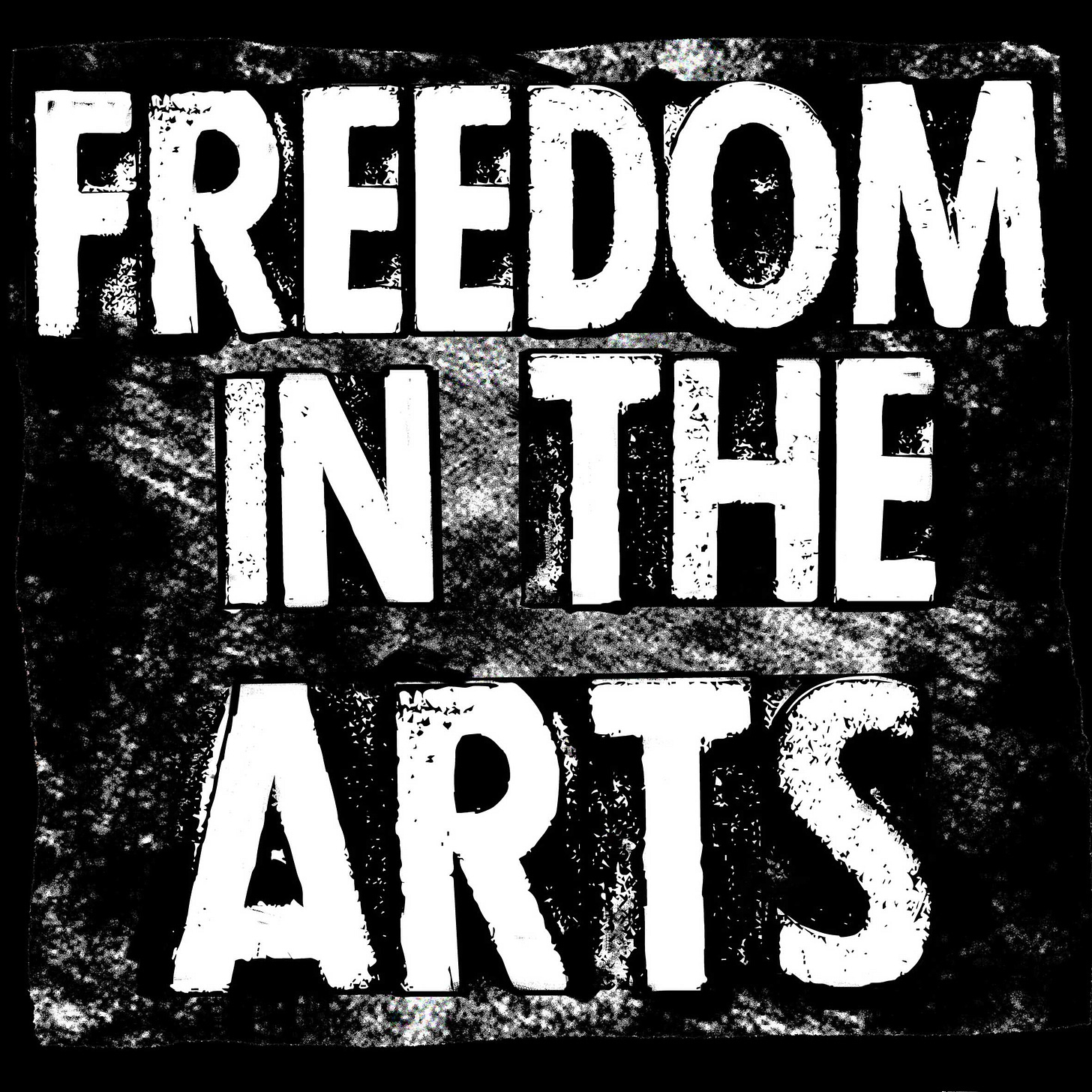A manifesto for artistic freedom
In a guest post, Denise Fahmy explains why she co-founded Freedom in the Arts and outlines the changes required to ensure that the arts sector can thrive, whoever forms the next government.
In October 2023, at the Battle of Ideas festival, choreographer Rosie Kay and I launched Freedom in the Arts (FITA) responding to an emergency: the arts sector had slid into a very censorious place. Artists’ cancellations were an everyday occurrence; workplace bullying was being recast as the actions of the righteous while endemic group-think encouraged self-censorship.
In the years running up to FITA’s inception, Rosie and I had both survived our own baptisms of fire. As artistic director of Rosie Kay Dance Company, Rosie was a multi-award-winning choreographer, dancer and director with 25 years’ experience in the dance world. In 2018, Rosie Kay Dance Company joined Art Council England’s national portfolio, securing highly competitive annual funding. Despite this public investment, which should have strengthened the company, Rosie’s company collapsed in 2022 when she was subjected to unfounded allegations of transphobia by young dancers in the company, forcing her resignation and the board’s dissolution of the company.
While this Kafkaesque process was unfolding for Rosie, I was also wending my own way through a similar minefield. I was an Arts Council staff member of 15 years standing. Having questioned why, at a staff meeting of 400 colleagues, a grant of £10k awarded to LGB Alliance was deemed to have been a mistake by a senior staff member, an internal petition was posted on the staff intranet, again with the allegation of transphobia. Eventually I went on to win an employment tribunal against my employer, who had ‘opened the door’ to a campaign of harassment.
Both of us had expressed perfectly legal views, but experienced the devastating effects of cancellation that far outweighed any perceived ‘crime’ and have changed our lives.
Rosie has interviewed many arts people who have offered both their support and insights into their own hostile workplaces. She explained in a recent newspaper article that ‘one senior leader in the arts described the atmosphere in the sector ... as “One of intense fear and loathing”. It is a place of... constant wariness of being watched and monitored, every decision, artistic or personal, has the ability to end a career.’ That is why so few dare to speak out.
Rosie and I came together at a parliamentary event in April 2023 when Baroness Jenkin invited us to speak about our experiences to a packed room of cross-party peers and MPs. The cultural sector is the smallest government department in each UK nation, and sees regular changes of ministers. But it was not lost on parliamentarians that the institutions, broadcasters and funders in the cultural world have tremendous sway over the ‘town square’. Intolerance in the arts breeds intolerance in the public.
Following this charged meeting, it was clear to us that a new body was needed to support better protection of artistic freedom. With strong public interest in our cases, and spurred on by my tribunal victory in June, we drew together an advisory group and launched an open letter, now numbering 1,300 signatories, at the Battle of Ideas festival in October 2023.
Following the UK elections on 5 July, our manifesto will be on the desks of the incoming secretaries of state responsible for culture in England, Wales, Scotland and Northern Ireland.
FITA’s manifesto presents three themes for the next government:
to protect artistic freedom
to restore artistic excellence as the guiding principle in the arts
to ensure the arts-funding system centres a healthy arts scene over instrumentalism.
To stop the culture of bullying, FITA asks government to support arts’ protection of artistic freedom and restore the impartiality of institutions - ensuring individuals, artists and audiences are free to express themselves. To ensure cultural funding and support bodies are impartial, services should be delivered under the Civil Service Code while maintaining the ‘arm’s length’ principle from government.
FITA demands government centres artistic excellence over identity, and that mechanisms that have too heavily focused on identity are repealed. To better nurture quality and talent, excellence in arts learning is more beneficial than over-stretched access opportunities.
FITA advocates for greater accountability in arts funding and a reduction in arts administration expenditure to increase investment in arts production. FITA calls for the strengthening of artists’ legal protection to bring about a fairer arts sector.
There’s no disguising the fact that protecting artistic freedom is complex and takes us into grey areas of decision-making. While the Human Rights Act 1998 set limits to freedom of expression which, of course, we accept, there are always likely to be differences of opinion on what constitutes a proportionate restriction.
However, the problem we are currently seeing in the UK is not that of state censorship or explicit restriction, but the ‘disapproval’ of an empowered and politicised minority leading to the silent withdrawal of opportunities to the artist. Without an explicit commitment from arts leaders, funders and stakeholders, there is no recourse for the artist as institutions lack the defences, mechanisms or confidence to resist (or even properly investigate) allegations and opprobrium, which at times amount to little more than bullying.
We hope to turn this situation round, helping organisations to look at ways to embed artistic freedom and reinstate institutional impartiality. We’re not advocating a retreat into ‘safetyism’ – the arts will always be home to risky and wonderful work. But if the arts sector is to continue to thrive, it needs to better embed artistic freedom, prioritise artistic excellence and halt the decline of pluralism.
Denise Fahmy is co-founder of Freedom in the Arts. She has 30 years’ experience in arts administration and development.



